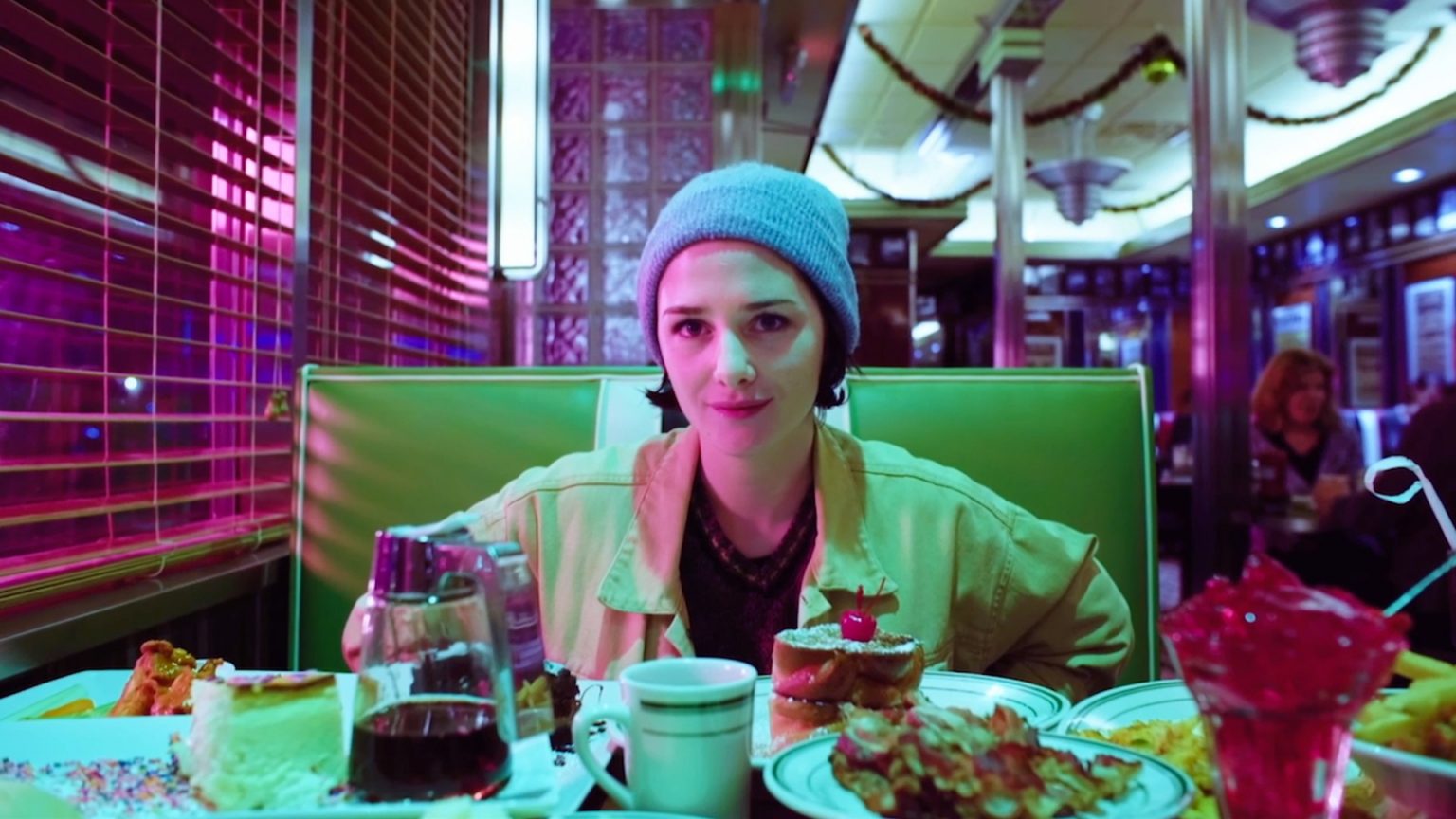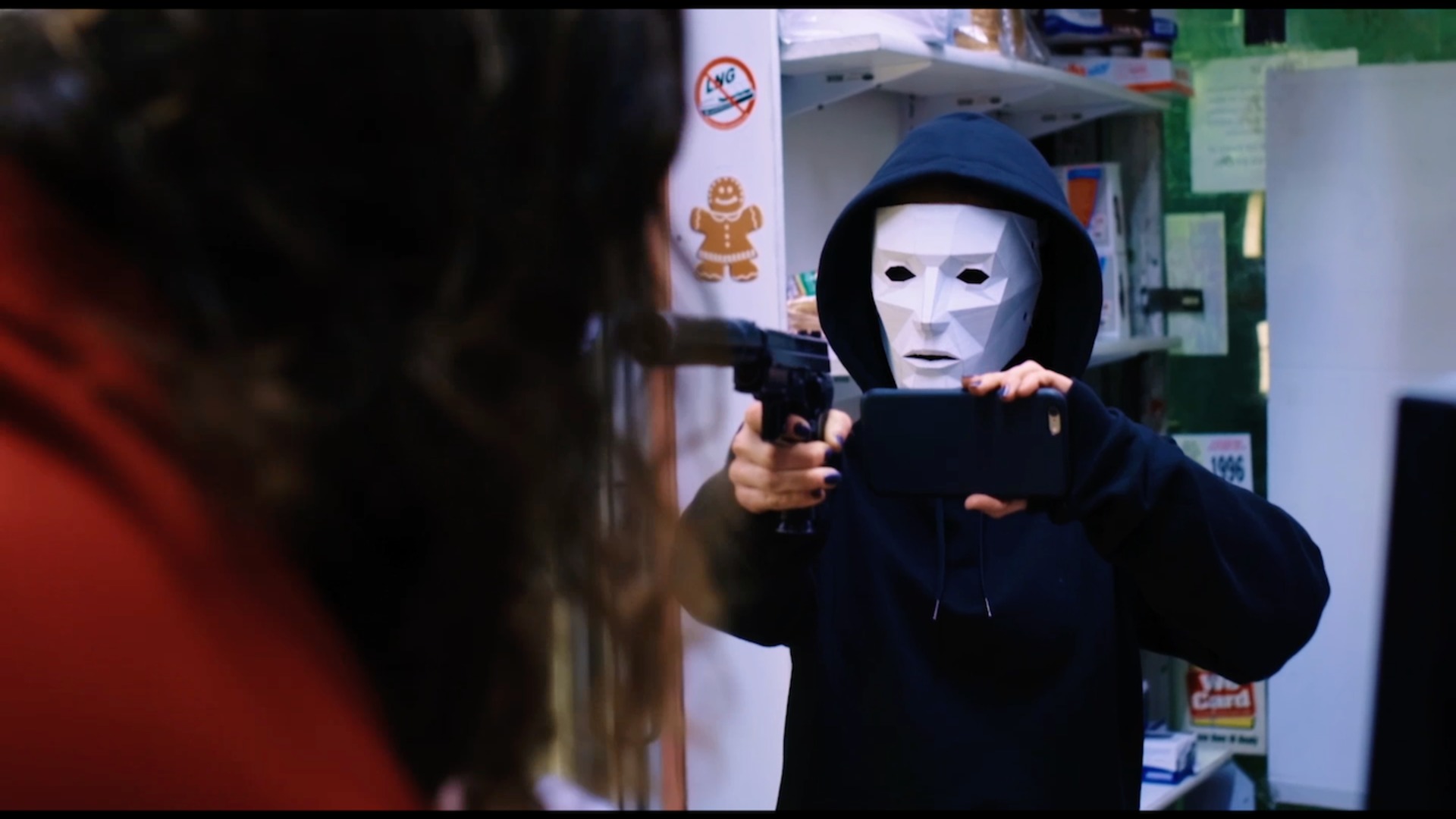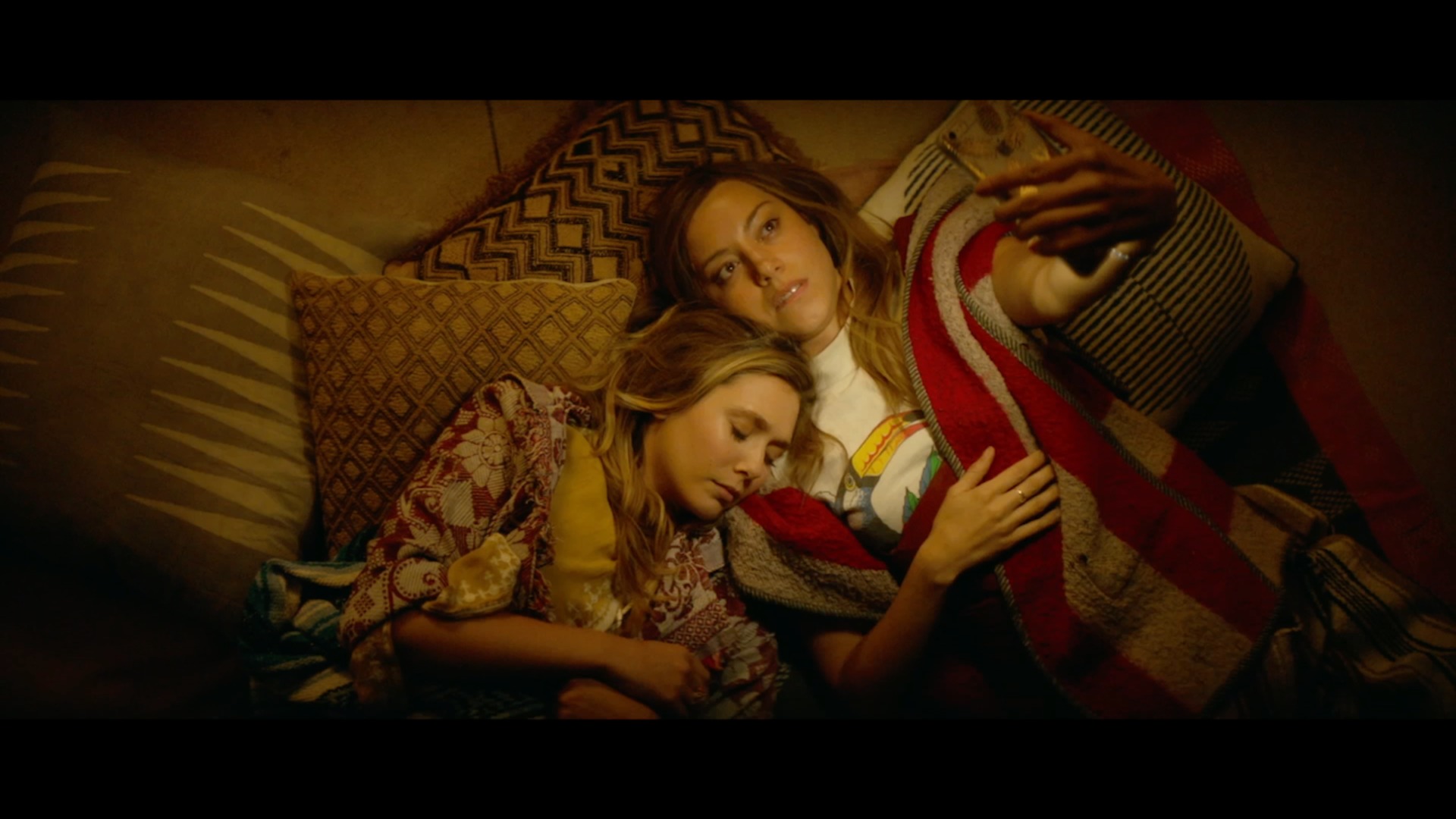In the opening scene of director Robert Mockler’s 2017 film, Like Me—a neon candy-coated phantasmagoria of millennial loneliness inspired by Taxi Driver—viewers observe a bemused convenience store clerk (Jeremy Gardner) through the lens of Kiya’s (Addison Timlin) iPhone. Kiya is a troglodytic young woman and solipsistic prankster who degrades strangers for her popular YouTube channel. At first the clerk plays along, performing like an organ grinder’s monkey by dancing, throwing straws, and pretending to have Tourette’s Syndrome. “What’s gonna make the best video?” he ponders, acknowledging the social media age’s voyeuristic fascination with diminutive on-screen oddities, in a sense no different from Edison’s Black Maria Studio shorts of cinema’s early days. Suddenly, Kiya whips out a gun from the corner of the frame, a petrifying image that eerily evokes the iPhone-broadcast murders of newscaster Alison Parker in 2015 and Robert Godwin in 2017. After the clerk pees himself during his desperate plea to live, Kiya flees to her reclusive hotel room to upload the video, successfully amassing two million views and five hundred thousand new subscribers.
Like Me recalls the recent release, Ingrid Goes West. Both explore alienated twenty-something women on a monomaniacal quest for adoration via their online alter egos. They join the lexicon of films such as Taxi Driver, Nightcrawler, and River’s Edge that examine society’s desire for notoriety and basis of self-worth on the views of others. Social media’s titanic presence in the modern zeitgeist has greatly exacerbated such impulses. Ingrid Goes West is a sepia-toned satire of Instagram’s white Los Angeles-ian bourgeoisie. Ingrid (Aubrey Plaza) travels to California to stalk notorious hippy-ster Instagram influencer Taylor Sloane (Elizabeth Olsen), hoping their friendship will boost her social media following. Ingrid’s use of Facebook, Instagram, Twitter, and YouTube, which she uses to reflect a curated version of her ideal self serves as a modern proxy of the mirror in which Taxi Driver’s Travis Bickle plays out his Western outlaw fantasies. For Ingrid, Instagram is a personal museum that exhibits people’s immaculate lives, in which one travels to exotic places, eats at pristine restaurants, and attends the swankiest events. In one of the film’s most amusing scenes, Taylor and Ingrid command their random tourist photographer to lie on the ground in order to get the best angle, demonstrating the well-executed fakery that goes into tailoring a post and its scrupulously-selected captions, hashtags, and emojis. Unlike Ingrid, Kiya cannot construct a flawless social media persona out of her indigent nomadism; She can only commit appalling sadistic actions to get more likes. Ingrid only turns to violence when her acquired lifestyle is threatened and she attempts to murder Taylor’s brother after he discovers her secret obsession with his sister.
Instead of the perfected postings of Ingrid Goes West, Like Me examines the repugnant depravity of snuff viral videos and our blasé attitudes towards them. An ingenious montage depicts the Mobius strip of reactions and memes that Kiya’s convenience store video spawns; while some YouTubers criticize Kiya, most merrily mock the clerk’s fear and care little for his suffering. Desiring even more likes, Kiya attempts to top her last YouTube performance with a more direct act of violence. She lures a hotel manager named Marshall (Larry Fessenden) to her bed, ties him up and force-feeds him greasy pizza, gummy worms, bacon, and milk.
After kidnapping Marshall, Kiya reads aloud the vicious expletive-laden YouTube comments that encourage her to shoot him. His terrifying near-suffocation amuses thousands of her followers, but it isn’t enough. Now they want to see him dead. This scene brings to mind the nihilistic River’s Edge, which also explores the lives of fractured young adults who, like Ingrid and Kiya, cannot forge interpersonal connections. Like Kiya’s followers, the character’s in River’s Edge react nonchalantly to callous and maniacal deeds, and are fascinated with death. After a schoolmate murders his girlfriend, a group of friends line up to view her corpse in fascination, as if she were a zoo exhibit, casually treating her murder as an everyday occurrence. Without social media to promote himself, the film’s Reagan-generation culprit brags about his conquest to the entire school.
Kiya commits her most deadly act of all in the final scene of Like Me, one that is sure to secure her the most views, just as Ingrid’s video of her attempted suicide finally gets her the unqualified notoriety she so vociferously craves. Her behavior is reminiscent of that of Leo Bloom (Jake Gylenhaal) in 2014’s, Nightcrawler, a solitary and idiosyncratic protagonist who gains renown on the nightly news circuit by filming horrific and bloody accidents and murders. Decades earlier, before the dawn of online technology, Travis Bickle attempted a public assassination in order embody his (twisted) hero reveries.
All of these characters commit outlandish—and often abject—widely-viewed acts in order the gain the attention they covet, and they carefully craft false personas to be anything but ordinary. Through the powers of social media, Kiya and Ingrid are able to broadcast their ideal selves worldwide. These films, along with Taxi Driver, River’s Edge, and Nightcrawler, warn us of the dangers of loneliness and how our inborn craving for approbation can drive us to barbarism. Like Me and Ingrid Goes West specifically propose that the more social media develops, the more our isolation, attention-seeking behavior, and desire to be someone other than our true selves will worsen.
Caroline Madden (@crolinss) was born and raised on the Jersey shore. An alumni of the New York Film Festival Critics Academy, her writing appears on Reverse Shot, IndieWire, Vague Visages, PopMatters, and Screenqueens. Her book Bruce Springsteen as Soundtrack: Film, Television, and the Music of the Boss (McFarland & Co.) releases in 2019.






